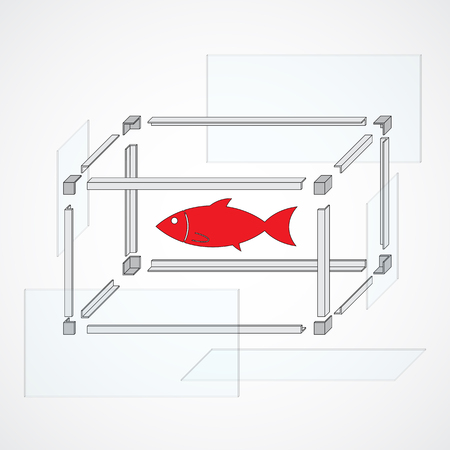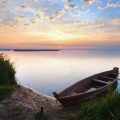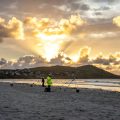Introduction to Guided Sea Fishing Holidays in Scotland
Scotland’s rugged coastline, scattered islands, and wild North Atlantic waters have long made it a magnet for anglers seeking unforgettable sea fishing experiences. Guided sea fishing holidays in Scotland are purpose-built getaways that pair visiting fishers with expert local guides, providing all the equipment, knowledge, and logistical support required for a successful trip. These holidays are designed to accommodate everyone from absolute beginners trying their hand at saltwater angling for the first time to seasoned rods looking to land that elusive personal best.
What sets Scotland apart is its combination of breathtaking scenery, rich maritime heritage, and the sheer diversity of its marine life. The country’s extensive network of sea lochs, estuaries, and exposed Atlantic shores offers access to some of the best sea fishing grounds in the UK. From remote Highland outposts to bustling harbours on the west coast, each destination offers a unique flavour—steeped in Scottish culture and history.
Guided trips typically include:
| Feature | What’s Included |
|---|---|
| Guiding & Instruction | Local experts sharing techniques, safety tips, and regional knowledge |
| Tackle & Equipment | All necessary rods, reels, bait, and end-tackle provided |
| Vessel Hire | Access to fully equipped boats or shore-based locations |
| Permits & Licences | Arranged as part of the package where required |
| Catering & Accommodation | Options ranging from packed lunches to full board with local specialities |
This holistic approach ensures that even those new to sea fishing can enjoy a stress-free experience without worrying about logistics or local regulations. Meanwhile, experienced anglers benefit from insider advice on targeting specific species and making the most of Scotland’s ever-changing conditions. Whether you’re hoping to chase hard-fighting pollack off rocky headlands or simply soak in spectacular coastal views while dropping a line for mackerel, guided sea fishing holidays in Scotland offer an accessible yet authentic adventure tailored to all skill levels.
Top Sea Fishing Destinations Across Scotland
Scotlands rugged coastline and pristine waters are a magnet for sea anglers, offering an array of destinations that cater to novices and seasoned fishers alike. Each region boasts its own unique blend of species, scenery, and local culture. Below, we take a closer look at the most renowned hotspots for guided sea fishing holidays across Scotland—highlighting what makes each one a standout choice for your next angling adventure.
The Orkney Islands
Sitting off Scotland’s northern coast, the Orkney Islands are famed for their unspoilt seascapes and abundant marine life. The waters here are particularly rich in cod, ling, pollack, and mackerel. Local guides often take advantage of the dramatic tides and reefs around Hoy and Mainland Orkney, making it an excellent spot for both shore and boat fishing. The islands’ remoteness also ensures a tranquil experience, far from crowded hotspots.
Shetland
Further north, Shetland offers one of Britain’s most productive sea angling environments. Renowned for its deep waters and clean tidal streams, Shetland is perfect for catching large coalfish, haddock, saithe, and even the occasional halibut. Guided charters frequently explore sheltered voes (sea inlets) as well as more exposed offshore marks. The archipelago’s vibrant fishing heritage adds a cultural dimension to any visit.
Moray Firth
This expansive inlet on Scotland’s northeast coast is well-known for its diverse catch opportunities. Species such as flatfish, cod, whiting, and dogfish are common here, especially around the towns of Lossiemouth and Buckie. Moray Firth is particularly popular with families or those new to sea fishing thanks to its easy access points and relatively calm conditions. Dolphin sightings are an added bonus!
Firth of Clyde
The Firth of Clyde stretches along Scotland’s southwest coast and is celebrated for its variety of fish species—including spurdog, skate, thornback ray, mackerel, and conger eel. Accessible harbours such as Troon, Largs, and Campbeltown make this region ideal for short breaks or day trips. The area benefits from a milder climate compared to northern regions, extending the effective fishing season well into autumn.
Quick Comparison of Top Scottish Sea Fishing Destinations
| Destination | Main Species | Best For | Unique Features |
|---|---|---|---|
| Orkney Islands | Cod, Ling, Pollack, Mackerel | Unspoilt scenery & remote experiences | Dramatic reefs; minimal crowds |
| Shetland | Coalfish, Haddock, Saithe, Halibut | Trophy catches & cultural heritage | Deep water; strong tidal streams |
| Moray Firth | Flatfish, Cod, Whiting, Dogfish | Family-friendly & beginners | Dolphin sightings; gentle conditions |
| Firth of Clyde | Spurdog, Skate, Ray, Conger Eel | Diverse species & accessibility | Mild climate; accessible harbours |
No matter which destination you choose for your guided holiday in Scotland, each location promises a distinct experience tailored to different interests and skill levels—making Scotland truly one of Europe’s premier sea fishing escapes.

3. Commonly Targeted Species and Seasonal Variations
Scotland’s diverse coastline and rich marine habitats make it a premier destination for sea anglers keen to experience guided fishing holidays. The nation’s waters are teeming with sought-after species, each offering unique challenges and rewards depending on the season and location. Understanding which fish are most commonly targeted—and when to pursue them—can significantly enhance your angling success.
Popular Fish Species in Scottish Sea Fishing
| Species | Best Locations | Peak Season | Notes |
|---|---|---|---|
| Cod | East coast (Aberdeenshire, Fife), Orkney, Shetland | October–April | Larger cod are often caught in deeper waters during colder months. |
| Pollock | West coast (Oban, Mull), Inner Hebrides | May–September | Prefers rocky marks and kelp beds; a favourite among lure anglers. |
| Mackerel | All coasts, especially piers and harbours (Eyemouth, Arbroath) | June–September | Arrive in large shoals; ideal for family-friendly trips and beginners. |
| Skate | Sound of Mull, Loch Sunart, Oban area | March–November | Trophy-sized common skate can exceed 100kg; strictly catch-and-release. |
Catching Cod: Winter Rewards on the East Coast
The colder months from late autumn to early spring see cod moving closer to shore, especially along the east coast and in northern archipelagos like Orkney. Guided trips at this time often focus on deeper marks where sizeable cod are abundant—making winter an excellent period for those seeking a classic British sea angling experience.
Pollock: Summer Action Amidst the Kelp
If explosive fights and rugged coastal scenery appeal, targeting pollock during late spring and summer is a must. The west coast’s rocky outcrops and kelp forests provide perfect hunting grounds. Many guides recommend using artificial lures or soft plastics for an active angling session with plenty of action.
Mackerel: A Summer Staple for All Abilities
Mackerel arrive in shoals as waters warm up, providing fast-paced sport from June onwards. Their abundance around harbours and piers makes them accessible for all skill levels—a fantastic option for mixed groups or those new to sea fishing. Many local guides offer short mackerel trips that combine great catches with scenic views.
Skate: Scotland’s True Giants
The legendary common skate remains one of Scotland’s most iconic targets. These enormous fish inhabit deep lochs and sounds along the west coast, with prime fishing spanning from early spring to late autumn. Due to their size and conservation status, reputable guides enforce strict catch-and-release policies—ensuring future generations can enjoy these remarkable encounters.
4. Typical Itinerary and Guided Experience
When booking a guided sea fishing holiday in Scotland, guests can expect a thoroughly organised experience that caters to both novices and seasoned anglers. Below is a detailed breakdown of what a typical guided sea fishing trip entails, ensuring you know exactly what’s included and how your day will unfold.
Equipment Provision
Most reputable Scottish fishing charters provide all the necessary gear as part of their package. This generally includes:
| Equipment | Details |
|---|---|
| Rods & Reels | Quality saltwater tackle suitable for local species |
| Bait & Lures | Fresh or artificial options, tailored to target fish |
| Protective Clothing | Waterproofs, boots, and sometimes life jackets supplied |
| Safety Gear | Life vests, first aid kits, emergency beacons on board |
Boat Types and Facilities
The type of boat provided often depends on the destination and targeted species. Most commonly used vessels include:
- Charter Boats: Spacious, stable crafts with cabins, toilets, and heated areas for comfort in unpredictable Scottish weather.
- Rigid Inflatable Boats (RIBs): Fast, manoeuvrable options ideal for reaching remote marks quickly.
- Traditional Fishing Boats: For a more authentic experience, especially in the Highlands and islands.
The Guided Experience: Local Expertise Matters
A standout feature of Scottish sea fishing holidays is the depth of local knowledge provided by experienced guides. These professionals are adept at:
- Selecting prime fishing spots based on tides and seasonal migrations.
- Offering tuition on techniques specific to regional species such as pollack, cod, or skate.
- Ensuring adherence to Scottish angling regulations and conservation practices.
- Sharing fascinating insights into local marine life and coastal culture.
The Day’s Itinerary: What to Expect
| Timeframe | Activity Description |
|---|---|
| 08:00–09:00 | Arrival at harbour; meet guide and crew; safety briefing; equipment allocation. |
| 09:00–12:30 | Sail to selected marks; initial fishing session with guidance on tactics. |
| 12:30–13:00 | Lunch break on board or anchored near scenic spot (often packed lunch provided). |
| 13:00–16:00 | A second round of fishing targeting different depths or species; potential for some catch-and-release education. |
| 16:00–17:00 | Return to harbour; debrief; opportunity to photograph catch; discussion about fish handling and cleaning (some operators offer filleting services). |
Safety Considerations at Sea
Your safety is paramount throughout the excursion. All professional guides operating in Scotland must comply with strict maritime safety standards. Expect a comprehensive safety demonstration before departure, regular check-ins during the trip, and the presence of well-maintained communication equipment. Adverse weather conditions may prompt itinerary adjustments—guides always prioritise guest welfare over rigid scheduling.
In Summary
A guided sea fishing holiday in Scotland offers not just access to world-class angling but also peace of mind thanks to excellent equipment provision, knowledgeable local guides, comfortable vessels, and robust safety protocols. This holistic approach ensures a rewarding experience for every visitor, regardless of skill level or prior experience.
5. Gear Up: Tackle and Equipment Standards
When embarking on a guided sea fishing holiday in Scotland, understanding the local tackle and equipment standards is crucial to maximising your experience. The harsh North Atlantic climate, rugged coastlines, and variety of species demand robust and reliable gear. Here, we analyse the most commonly used rods, reels, terminal tackle, and clothing for Scottish sea fishing, as well as offer advice on whether to bring your own kit or rely on the equipment provided by local guides.
Commonly Used Tackle and Equipment
| Category | Typical Specification | Recommended Use |
|---|---|---|
| Rods | 9-12ft beachcasters (4-8oz casting weight), 7-8ft boat rods (20-30lb class) | Shore fishing for cod, pollock; Boat fishing for skate, ling |
| Reels | Fixed spool reels (6000–8000 size), Multipliers (level wind preferred) | Smooth line lay and strong drag for big fish; essential for both shore and boat work |
| Terminal Tackle | Pulley rigs, clipped-down rigs, circle hooks (size 1/0–6/0), wire traces for toothy species | Adaptable for changing tides and target species such as conger eel or tope |
| Lines | Braid (30–50lb) for sensitivity; Mono leader (60–80lb) for abrasion resistance | Braid for casting distance & bite detection; Mono protects against rocks and kelp |
| Clothing | Thermal base layers, waterproof bib & brace, windproof jacket, insulated boots & gloves | Vital protection against unpredictable Scottish weather, especially from October to April |
Should You Bring Your Own Gear?
The decision to bring personal equipment versus using supplied gear depends largely on your level of experience and preference for familiarity. Most reputable Scottish guides provide high-quality tackle suited for local conditions. This is particularly advantageous for beginners or those travelling light. However, seasoned anglers may prefer their own rods or reels—especially if they have a setup tailored to specific techniques or comfort.
Pros of Using Provided Equipment:
- No baggage hassle or risk of damage during travel.
- Kits are specifically chosen for local conditions by experienced guides.
- Opportunity to try new brands or methods without investment.
- Often included in the cost of guided packages.
Cons of Using Provided Equipment:
- You may not be accustomed to the feel or balance of the gear.
- Minor wear and tear can affect performance—check before heading out.
- If you have specialist requirements (e.g., left-handed reels), check availability in advance.
Expert Advice:
If you are targeting larger species such as common skate or porbeagle shark, confirm that heavy-duty rods and terminal tackle are available. For multi-day trips in remote areas like Shetland or Orkney, always bring personal waterproofs and layering systems—even if clothing is advertised as provided—as Scottish weather can be highly variable. Ultimately, communicate with your guide ahead of time to clarify what’s included and what you might need to supplement. A little preparation ensures a smooth and successful Scottish sea fishing adventure.
6. Costs, Packages, and What’s Included
When planning a guided sea fishing holiday in Scotland, understanding the cost structure is essential for avoiding surprises and making the most of your experience. Scottish fishing holidays cater to a range of budgets, from affordable day trips to luxury multi-day adventures, but knowing what you’re paying for—and what you might end up paying extra for—is key.
Typical Pricing Structures
| Package Type | Duration | Estimated Cost (per person) | What’s Usually Included |
|---|---|---|---|
| Day Trip (Shared Charter) | 6–8 hours | £80–£150 | Tackle hire, bait, guide/skipper, light refreshments |
| Private Charter (Small Group) | 6–8 hours | £350–£600 (for 4-6 people) | Exclusive boat use, tackle hire, bait, guide/skipper |
| Multi-Day Package (All-Inclusive) | 2–7 days | £400–£1500+ | Accommodation, meals, transfers, tackle hire, guide/skipper |
What’s Typically Included in Packages?
- Tackle and Bait: Most packages provide quality rods, reels, terminal tackle, and fresh bait suitable for local species.
- Guiding Services: A knowledgeable skipper or professional angling guide familiar with local waters and best techniques.
- Boat Hire: Use of a licensed sea-going vessel with all necessary safety equipment.
- Refreshments or Meals: Light snacks and hot drinks are common on day trips; multi-day packages may include all meals.
- Accommodation: Only included in “all-inclusive” or tailored multi-day breaks; usually bed & breakfast or self-catering cottages.
- Permits and Insurance: Boat charters typically include insurance and necessary angling permits.
Potential Hidden Costs to Watch For
- Tipping: Not always included—standard practice is £10–£20 per angler for the skipper/guide.
- Travel to Departure Point: Transfers from airports or train stations may be extra unless specified.
- Catering Upgrades: Special dietary requirements or packed lunches may incur surcharges.
- Beverages: Alcoholic drinks are rarely included; check package details if this matters to you.
- Tackle Loss/Damage Fees: Lost or damaged gear can attract additional charges—clarify policy beforehand.
- Catches Processing/Shipping: Some operators charge for filleting or shipping your catch home.
Pitfalls & Tips for Best Value
- Avoid Peak Season Premiums: Prices rise during summer and weekends—consider shoulder seasons like spring or autumn for savings and quieter waters.
- Larger Groups = Better Rates: Private charters split among friends often work out much cheaper per head than individual bookings.
- Read Reviews & Ask Questions: Check recent customer feedback on inclusions and hidden extras before booking. If in doubt, ask the operator for a written list of what is—and isn’t—included.
- Loyalty Discounts: Returning customers sometimes get better deals; don’t hesitate to enquire if you’ve fished with an operator before.
An honest conversation about costs ensures your Scottish sea fishing adventure is as rewarding—and stress-free—as possible. Thoroughly research packages, clarify any grey areas regarding inclusions, and factor in ancillary expenses so you know exactly what you’re getting for your money.
7. Practical Tips for a Memorable Scottish Fishing Holiday
Advice on Booking Your Guided Sea Fishing Experience
When planning a sea fishing holiday in Scotland, it’s vital to book your guided trips well in advance, especially during peak seasons such as late spring and summer. Many reputable charters operate from popular destinations like Oban, Ullapool, and the Orkney Isles, each offering unique angling experiences. When choosing a guide, check their credentials, customer reviews, and what equipment is included. Some charters specialise in specific species or offer tailored packages for beginners and seasoned anglers alike.
Permits and Local Regulations
While sea fishing from the shore generally does not require a permit in Scotland, certain areas—especially those within marine protected zones—may have restrictions or seasonal closures. For boat fishing or targeting specific species (like salmon or sea trout), permits may be required. Always consult your guide or local authorities before casting off. Below is a quick reference table for common permit requirements:
| Activity | Permit Needed? | Where to Obtain |
|---|---|---|
| Shore Sea Fishing | No (exceptions apply) | N/A |
| Boat Sea Fishing | Rarely (some exceptions) | Charter operator/local council |
| Salmon/Sea Trout | Yes | Fishery board/estate office |
Eco-Friendly Angling Practices
Respecting Scotland’s pristine coastline is paramount. Use barbless hooks where possible, practice catch-and-release with larger or endangered species, and avoid leaving any litter behind. Engage with guides who follow sustainable fishing practices and support local conservation efforts. Remember that protecting marine habitats ensures future generations can also enjoy Scotland’s world-class angling.
Immersing Yourself in Scottish Hospitality and Culture
Your fishing adventure isn’t complete without sampling Scotland’s warm hospitality. Stay at locally run inns or B&Bs to experience traditional fare—think hearty Cullen Skink soup or fresh seafood platters after a day on the water. Many communities host ceilidhs (folk music gatherings) or whisky tastings, giving you an authentic taste of Scottish culture.
Tips for Making the Most of Your Trip:
- Ask your guide about hidden gems along the coast for sightseeing between sessions.
- Pack for all weathers—Scotland’s climate can change rapidly even in summer.
- Bring binoculars for wildlife spotting: seals, dolphins, and seabirds abound.
Savouring Scotlands Coastal Scenery
The wild beauty of Scotland’s coastline is as much a part of the experience as the fishing itself. Consider arriving early or staying on after your trip to explore historic castles, secluded beaches, or dramatic cliffs. Capture memories with plenty of photographs—but always respect private land and protected areas.
Summary Table: Planning Your Scottish Sea Fishing Holiday
| Aspect | Recommendation |
|---|---|
| Booking | Reserve early; confirm what’s included with your guide/charter |
| Permits | Check local rules; secure necessary permissions for target species |
| Sustainability | Use eco-friendly gear; follow “leave no trace” principles |
| Cultural Experiences | Dine locally; attend community events; try regional specialities |
With thoughtful preparation and an open mind, your Scottish guided sea fishing holiday promises not just superb angling but also an unforgettable immersion into the country’s rich coastal heritage and breathtaking scenery.


